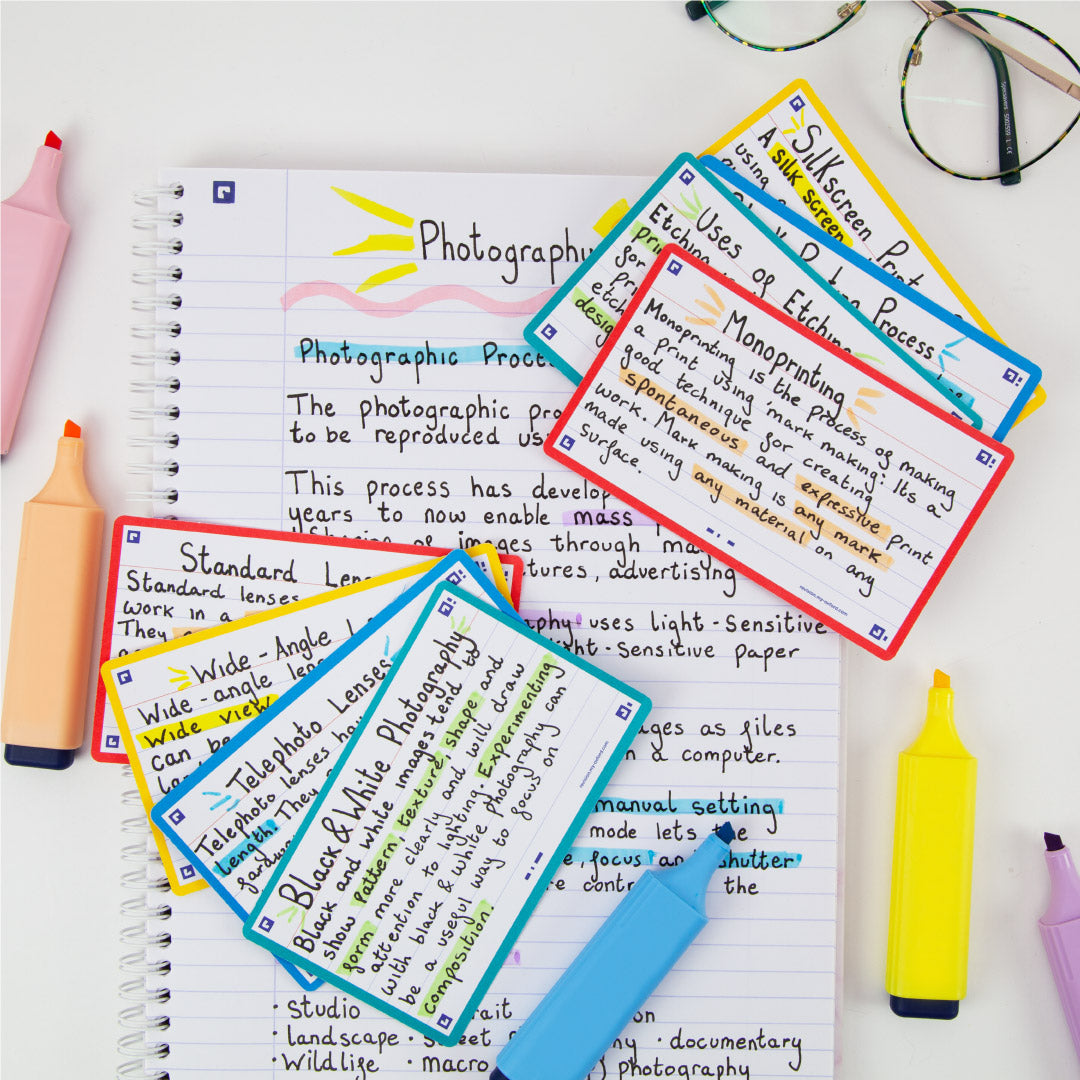With the number of classes, you have each day, it is sometimes difficult to stay on course. Literature here, math's there, without forgetting the cards in history... If only you had a magic method to multiply your ability to remember all that in record time! Our tips are not miracles but they will help you to facilitate your job of retaining information without putting in too much effort. 😌
Work begins before revision
Breaking news: the learning process begins during the course…at least, that's what we would like you to understand! Many students see the course as blah-blah where you take notes and it's only when you get home that you really start to work.
In fact, you begin to learn without even leaving the classroom. It's revolutionary! Rather than listening and mechanically taking notes, adopt an active approach – as the name suggests, it implies that you are... active. We explain to you:
- Listen carefully to what your teacher says. The terms have to make sense to you. It is all the more effective if you have an auditory memory as you will remember more quickly what is said!
- You have a doubt? Not understood or need a rephrasing? Ask questions. You will have less additional research to do during your revision.
- With this in mind, always try to look further and go beyond: what book can I read to complete what is said? Which documentary to watch? Which podcast to listen to?
Taking notes
In parallel with this active process, you must take notes. Note-taking is indeed an essential element in your learning because it corresponds to information fresh from your teacher's speech and, above all, unprocessed.
💡 Did you know that handwriting has been scientifically proven to help retain information better? Scientists therefore invite students to favour writing by hand rather than on the keyboard 😌
However, there is no question of writing down everything your teacher says. Good notetaking also involves sorting on the spot; Here we find a form of active approach!
👉 Focus on the main concepts, definitions, important figures and dates or even the essential formulas.
To facilitate your learning, you must also be able to find yourself in all these notes. Buy a notebook that will make your life easier! If you are part of the team, a notebook for several subjects, we can only recommend our subject notebook.
With coloured boarders, you can divide and organise your notebook as you wish to start working serenely. In addition, it is super resistant to guarantee you notes are safe😌
Anticipate!
That's not really a scoop: last-minute revision isn’t very effective. They can save you from a certain 0 (by transforming it into 6, at best) but will not be able to permanently anchor the information in your memory. To make matters worse, they cause stress, fatigue, and negative emotions 😮 💨
The reason is simple: learning is a process that does not happen overnight, let alone in the morning before an exam. To learn faster, you must first understand the course. The active approach will make your job easier, but to really get the hang of it, you have to take a little time to reread and do research if necessary.
So, you understand where we are coming from! As far as possible, plan a period of time to accommodate this complementary phase. You will be all the more serene once you arrive at the exam because you will know that you have done your best.
💡 Unexpected question? You don't know how to learn 10 times faster at the last moment? Memorization is not an exact science, so a word of advice: use the memorisation strategy that suits you. It can go through your type of memory or methods such as the mental palace or reminders...
The sheets, allies of revisions
The sheet is nothing more than a summary of your course aimed at facilitating the revision process. It's a bit of a summary of everything you need to know on a subject; the cards therefore have their place in these tips to learn 10 times faster! 😉
Do you want to look into it too? Here are some tips:
- Make sure you understand your course 200% before you start. You can only remember something if it really makes sense to you. If you followed the note-taking and active process phase, that should be the case. You see, it's useful!
- Go to the essentials in your files: not everything is good to note, and a sorting is essential. This is essential to understand the general structure of your course and help you detect possible topics that could fall under examination.
- Do not hesitate to write abbreviations to save time.
No distractions during your revisions 📵
To learn well, the best thing is to be in an environment conducive to revision, a kind of bubble in which you feel comfortable and productive. It will help you revise much faster and more efficiently, trust us!
- Tidy up your desk to make space - it works for your mind too! Use only what you need to avoid clutter and risk distracting yourself.
- Working in music is good! Boost your concentration with your favourite playlist or put on earplugs to cut yourself off from the world.
- As far as possible, cut the Wi-Fi on your computer and imperatively on your phone.
- Speaking of the phone, be careful to use it wisely during your revisions! It could cut you off in your tracks. Try downloading an app like Forest or Tide to stay focused.
Think about breaks
Do you have FOMO (fear of missing out)? Fortunately, the breaks are there! You will be able to quickly look at your phone and see that the Earth continues to turn 😉
Beyond allowing you to reconnect with the rest of the world, breaks optimize concentration. After intensive work, you will be intellectually tired and therefore less focused and motivated. A few minutes to breathe can only re-motivate you!
👉 The ideal break is 5 minutes on average. It's the perfect amount of time to disconnect from your task and recharge your batteries without completely losing your mind.
Moreover, this is often the break time recommended for followers of the Pomodoro method. You want to try?
Test your knowledge ✅
What remains once all your course learned, your skimmed sheets and your hours of revision passed? Another break? (no?) After the theory comes the practice! Only then will you really know if your efforts have paid off.
To test yourself, you can take exercises if the subject lends itself to it, especially mathematics and other scientific subjects. Go over the statements of the exercises and try to apply the formulas. It should be child's play if you have understood the course well and revised well 😉
For everything else, you can try flash cards. This is a small card on the front of which you can write a question and the answer on the back. Regularly, test yourself and try to answer the questions to test your knowledge!
Examples:
In what year did the French Revolution take place? - 1789
What is Newton's second law? - FR=m*y
What is the translation of the word “actually”? - In reality
💡 Our FLASH 2.0 flash cards lend themselves perfectly to the exercise. You can even scan them with SCRIBZEE to have them everywhere with you and revise in transport, the canteen queue or between two quizzes 😌
And There you go! You know how to learn 10 times faster with our tips. Ready to be super-fast? 🤩

